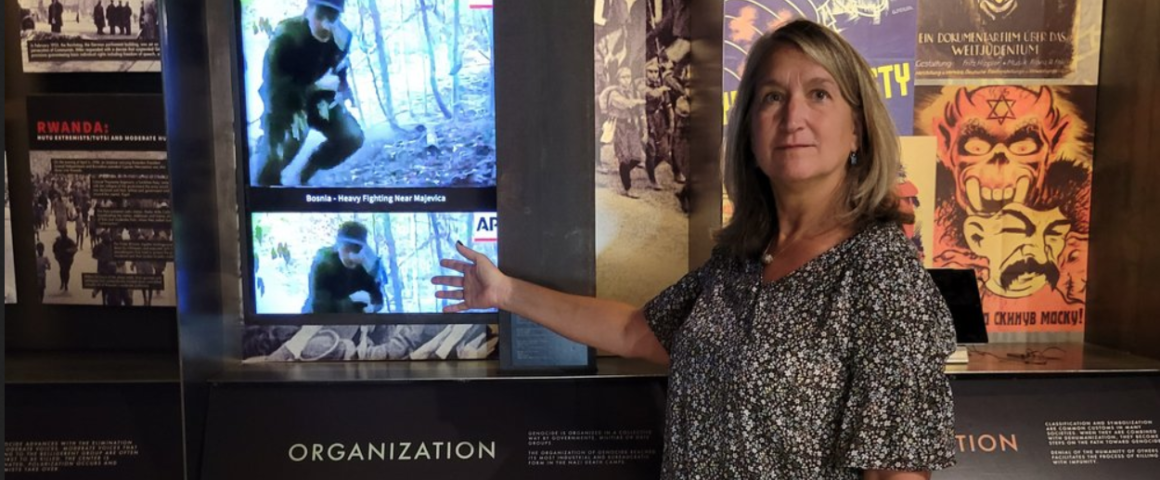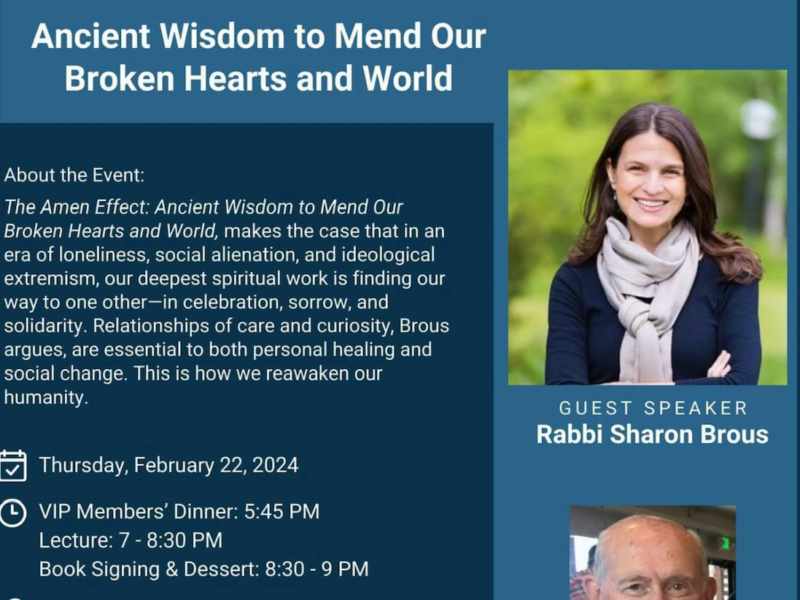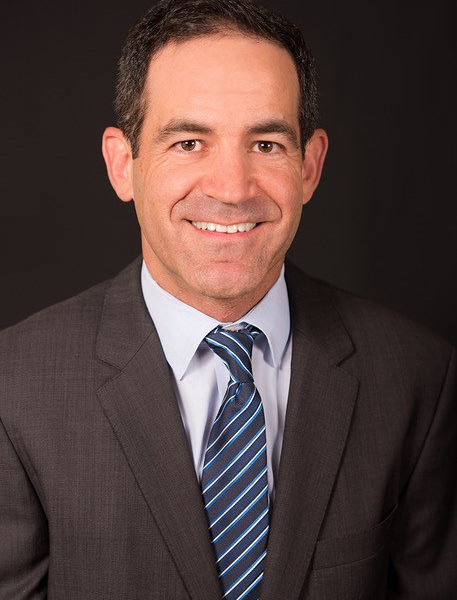Photo: Kim Klett recorded a virtual tour of the Tucson Jewish Museum & Holocaust Center.
On July 9, 2021, Governor Doug Ducey signed House Bill 2241, requiring that all Arizona students receive education on the Holocaust and other genocides during their K-12 education at least twice between seventh and 12th grade.
But long before that requirement was mandated, Kim Klett taught Holocaust Literature at Dobson High School in Mesa. “I started teaching my class in 2001,” says Kim. “When I was preparing for it, there was only one other semester-long class at the high school level in the state, and that was in Cottonwood. Pete Fredlake taught a semester-long class there, and he helped me with ideas and to put together some of the curriculum.”
In 2003, Kim received an extraordinary opportunity, a fellowship from the United States Holocaust Memorial Museum in Washington, D.C. The Museum Teacher Fellowship Program has a very competitive application process. The museum only accepts up to 15 teachers a year; there have only been eight other teachers selected from Arizona since the program began in the late 1990s. “Honestly, it’s the best thing professionally that has ever happened to me,” says Kim.
Kim traveled to Washington, D.C. to learn alongside historians and scholars and tour the museum after hours. Now, she’s a mentor to other teacher fellows. This year she has three teachers she is working with, two in Arizona and one in Texas. “I’m here to give them support and answer questions along the way,” says Kim.
Kim is also a teacher trainer for the Echoes & Reflections professional development program. Echoes & Reflections provides free professional learning opportunities and classroom content to equip educators to teach about the Holocaust effectively. She has also developed a curriculum in conjunction with videos of survivors produced by the Phoenix Holocaust Association. In addition, along with three other teachers, Kim developed a curriculum for the Tucson Jewish Museum & Holocaust Center. Recently, the museum honored Kim with the 2021 Educator of the Year award.
Years ago, she had worked with Sol Davis, the previous executive director of the museum, on some programming and lessons surrounding the artifacts and exhibitions at the museum. Building on that initial programming, Kim gathered a group of other teaching fellows from USHHM, and the four of them took materials and books that the museum had produced on local survivors and put together several lesson plans.
“We wrote ID cards for each of the survivors, like what the USHHM does when you walk in and your handed a card of someone (from the Holocaust),” says Kim. “We made those specific to the Tucson museum and their survivors and wrote some curriculum for teachers whether they’re visiting with their students or just want to use the incredible stories from Southern Arizona survivors.”
She also held a three-hour training session in November with area teachers. This way, teachers could get a taste of what they would see when visiting the museum with their students and things to consider if they’re going to use the lesson plans. They will also be holding another training session at the end of January. The curriculum is available on the museum’s Resources for Educators web page and is posted on the Arizona Department of Education’s Holocaust and Genocide Education Resources web page under “Lessons.”
Kim is also on a national committee of teachers who live in states where Holocaust education is mandated. This past summer, the teachers met in South Carolina to discuss what it means for educators as far as mandates go because many states do not have funding for it or clear parameters on what’s needed as far as teacher training.
“I applaud the teachers who are signing up with the Arizona Department of Education and Echoes & Reflections training that ran throughout the year,” says Kim. “Teachers took their own time to show up, and I am happy because they’re taking that initiative and to make sure they’re doing it correctly and covering the things that they need to. There’s nothing that says that anybody has to do that. But it’s fun to see what they do after they’ve gone through training; they come up with some great ideas for lessons.”
One example was in November last year, Chaparral High School presented “I Never Saw Another Butterfly,” a Holocaust-related play that was supplemented by presentations from Holocaust survivors and a mini-museum of Terezin, the concentration camp featured in the play. The idea for the production was initiated by the mother of a Chaparral student, Adena Astrowsky, a third-generation descendant who wrote a book about her grandmother’s survival story.
Despite being in her 30th year at Dobson High School, the excitement and passion in palpable in Kim’s voice when she talks about teaching – whether it is to other educators or her students. “I’m so glad I get to do this because it’s fun and rewarding. I think it opens people’s eyes and our students benefit because they have teachers who are trained and know how to handle a sensitive topic like this,” she says. “And the kids are honestly interested and ask the best questions. They’re just soaking it up because they want to know, and they’re interested in this history.”






